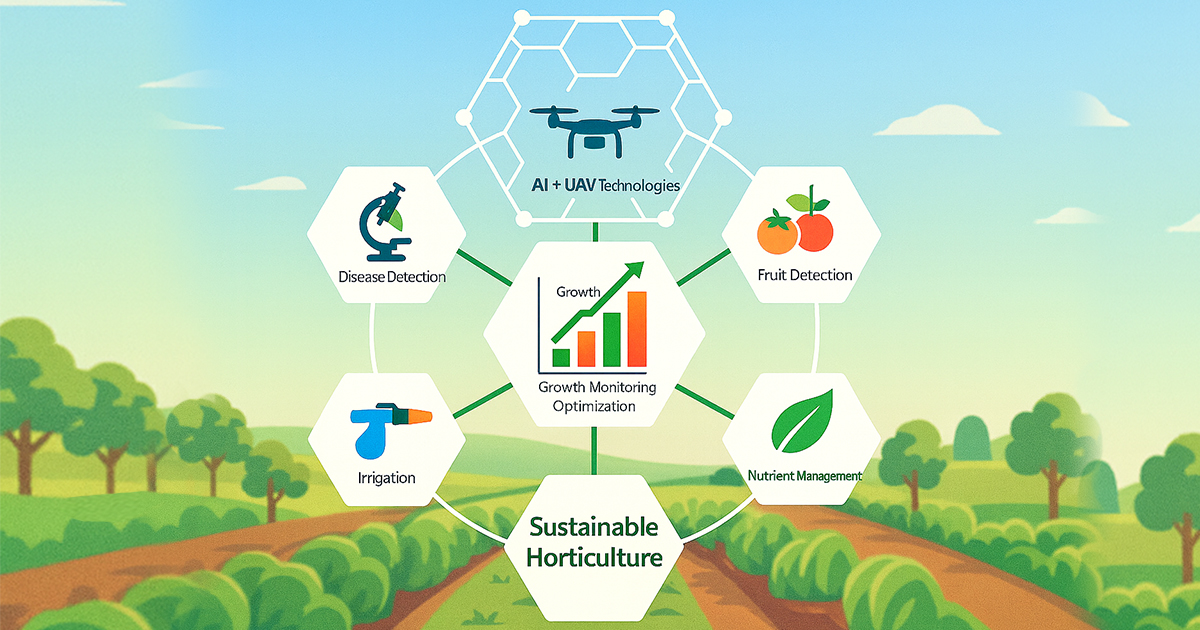Applications of Artificial Intelligence and Hyperspectral Imaging in Smart Digital Horticulture
A special issue of Horticulturae (ISSN 2311-7524). This special issue belongs to the section "Protected Culture".
Deadline for manuscript submissions: 20 April 2026 | Viewed by 149

Special Issue Editors
Interests: intelligent robotics system; remote sensing; smart agriculture; intelligent decision-making system
Interests: UAVs-drones; artificial intelligence; machine vision; precision agriculture
Interests: smart agriculture applications; embedded systems developing; FPGA intelligent acceleration system; information and communications technology (ICT); hyperspectral analysis
Special Issue Information
Dear Colleagues,
The burgeoning development of artificial intelligence (AI) is revolutionizing smart digital horticulture, with deep learning, computer vision, intelligent robotics, large language models (LLMs), and multi-agent systems (MAS) driving pivotal breakthroughs in plant nutrient monitoring, pest and disease diagnosis, irrigation and fertigation, biotechnology and genetic detection, yield prediction, environmental perception and control, and autonomous decision-making. Spectral analysis techniques—such as Hyperspectral Imaging (HSI), Raman spectroscopy, X-ray spectroscopy, Nuclear Magnetic Resonance (NMR) spectroscopy, Fluorescence spectroscopy, Atomic spectroscopy, Molecular spectroscopy, and Mass spectrometry—serve as powerful and effective tools for capturing high-resolution plant physiological and biochemical signatures. The integration with AI algorithms further enhances the precision of plant health evaluation, stress response characterization, nutrient dynamic analysis, crop quality assessment, and sustainable horticultural development.
This Special Issue solicits diverse AI-driven innovations applicable to horticultural scenarios, encompassing intelligent sensing systems, multimodal perception, big data analytics, digital twins, precision horticultural management models, automated horticultural machinery, and sustainable strategies for horticultural production and postharvest handling. Spectroscopy-based studies are highly encouraged but are not mandatory. The Issue aims to establish a rigorous academic platform for researchers and practitioners to disseminate cutting-edge findings, methodological advances, and real-world applications, thereby fostering the development of efficient, resilient, and sustainable horticultural systems.
Dr. Yongming Chen
Dr. Ping Lin
Dr. Zhiyong Zou
Guest Editors
Manuscript Submission Information
Manuscripts should be submitted online at www.mdpi.com by registering and logging in to this website. Once you are registered, click here to go to the submission form. Manuscripts can be submitted until the deadline. All submissions that pass pre-check are peer-reviewed. Accepted papers will be published continuously in the journal (as soon as accepted) and will be listed together on the special issue website. Research articles, review articles as well as short communications are invited. For planned papers, a title and short abstract (about 250 words) can be sent to the Editorial Office for assessment.
Submitted manuscripts should not have been published previously, nor be under consideration for publication elsewhere (except conference proceedings papers). All manuscripts are thoroughly refereed through a single-blind peer-review process. A guide for authors and other relevant information for submission of manuscripts is available on the Instructions for Authors page. Horticulturae is an international peer-reviewed open access monthly journal published by MDPI.
Please visit the Instructions for Authors page before submitting a manuscript. The Article Processing Charge (APC) for publication in this open access journal is 2200 CHF (Swiss Francs). Submitted papers should be well formatted and use good English. Authors may use MDPI's English editing service prior to publication or during author revisions.
Keywords
- artificial intelligence (AI)
- unmanned aerial vehicles (UAVs)
- deep learning
- computer vision
- decision-making
- horticultural crops production
- smart farming
- pest and disease detection
- yield estimation
- smart irrigation
Benefits of Publishing in a Special Issue
- Ease of navigation: Grouping papers by topic helps scholars navigate broad scope journals more efficiently.
- Greater discoverability: Special Issues support the reach and impact of scientific research. Articles in Special Issues are more discoverable and cited more frequently.
- Expansion of research network: Special Issues facilitate connections among authors, fostering scientific collaborations.
- External promotion: Articles in Special Issues are often promoted through the journal's social media, increasing their visibility.
- Reprint: MDPI Books provides the opportunity to republish successful Special Issues in book format, both online and in print.
Further information on MDPI's Special Issue policies can be found here.







